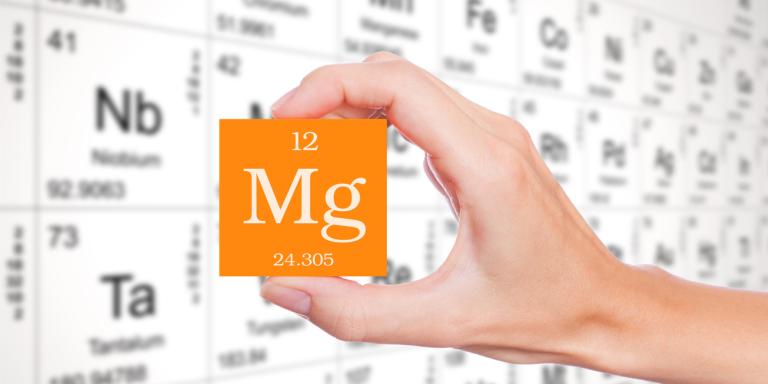Magnesium is to minerals what vitamin D is to vitamins. As the “master mineral” and superstar of over 300 key metabolic functions, it reigns supreme in the mineral kingdom.
However, not all magnesium supplements are created equal.
If high blood pressure, leg cramps, migraines, anxiety, irritability, depression, heart disease, unstable blood sugar or insomnia are still challenging your well-being, read on…
As the premiere heart mineral, magnesium is absolutely key for cardiovascular health. In fact, one study states that magnesium should be available for immediate use in all emergency departments. It is so important that many doctors and surgeons administer magnesium prior to some heart surgeries.
Magnesium’s benefits for heart palpitations can reduce the occurrence of many life threatening situations. However, up to 92% of hospitalized patients don’t have their magnesium levels tested—this is a big concern considering that as many as 80% of patients in the ICU are considered magnesium deficient!
Studies dating back 100 years confirm magnesium’s star power. Not only is this magnificent mineral essential for major metabolic functions, magnesium is also the ONLY mineral linked to all of today’s “Fearsome Foursome”—cancer, stroke, diabetes and heart disease.
Another surprising research finding shows that low magnesium (not just calcium) can lead to low vitamin D. Because low magnesium levels create resistance to some of the effects of vitamin D, many individuals taking vitamin D may not be reaping the true benefits! Individuals over 50 are especially at risk as most aren’t reaching the USDA’s daily average intake, let alone the Vitamin D Council’s suggestion of 5,000 IU/day for adults.
So why are up to 80% of Americans STILL magnesium deficient?
Your body requires around 500 to 1,000mg of magnesium a day, whereas in reality most of us only get one half of that and lose it as fast as we can.
Today, Americans depend upon magnesium to reduce depression, frequent nocturnal awakenings, food cravings, and of course, blood sugar stabilization. Even more of us are eating healthier (think green smoothies, almonds, and sea veggies) which happen to be exceedingly rich sources of dietary magnesium.
By now you may also be supplementing with this miracle molecule, but chances are you’re missing out because the type of magnesium supplement you’re taking cannot get to the right places.
How are we losing it?
First off, magnesium is a primo detox mineral. It is used up minute-by-minute to counteract stressors like food allergies and intolerances, prescription drugs, and exposure to heavy metals—especially aluminum. It also prevents kidney stone formation and even ADHD (Attention Deficit/Hyperactivity Disorder).
Given our busier than ever lifestyles, the body’s main use of magnesium is simply dealing with mental and physical stress. This adaptogenic mineral is being used up faster than we can possibly take it in.
Inefficient magnesium supplements with non-ideal co-factors combined with escalating environmental assaults are leaving nearly 100% of us magnesium starved. Symptoms of magnesium deficiency range from facial twitches, to Alzheimer’s, blood clots, chronic fatigue and osteoporosis.
Unfortunately, the most popular co-factors found in magnesium supplements—oxide and citrate—function as laxatives that primarily target the GI tract.
To support stressed hearts and overworked brains, new research reveals most Americans may need more optimized magnesium cofactors. This is where carriers such as glycinate and taurinate come into play targeting specific organs not supported by standard magnesium supplements. [best magnesium supplement]
In addition, magnesium malate and orotate are gaining steam for their ability to soothe and calm tight muscles, while significantly improving stamina and long term energy throughout the day.
The Magnesium Cofactor Must Haves
Glycinate, Malate, Taurinate and Orotate are the best forms of magnesium for head-to-toe optimal health. They are more effectively absorbed to support organ systems and bodily functions than any other forms.
-
Magnesium Glycinate – For Your Mind
- Controls anxiety, irritability, insomnia, concentration and hysteria
- Minimizes laxative effects and is the least likely form to induce diarrhea
- Corrects long term deficiencies
- Reduces numbness, crying and depression
- Increases mental calmness and relaxation
-
Magnesium Taurinate – For Your Heart
- Supports healthy heart function
- Prevents migraines
- Suppresses heart palpitations and arrhythmias
-
Magnesium Malate – For Your Muscles
- Treats fibromyalgia
- Calms muscle fatigue
- Manages PMS, and headaches
- Supports digestion (so take with meals)
- Increases energy production
-
Magnesium Orotate – For Your Body
- Enhances athletic performance
- Boosts DNA formation and heart repair and function
Besides taking a magnesium supplement with particular cofactors, it is also extremely important that a comprehensive magnesium supplement contains vitamin B6 (especially in the activated Pyridoxal 5 Phosphate targeted form). B6 determines how much magnesium will be absorbed by the cells in the first place.
Magnesium Sources in Food
Of course, diet remains the best supply of any mineral including magnesium. Here’s a list of the best sources to shore up your magnesium stores:
| Food | Magnesium |
|---|---|
| 16 oz. Coffee | 14mg |
| 1 cup Spinach | 24mg |
| 1⁄4 Seaweed (kelp) | 24mg |
| 1 oz. Dark Chocolate | 41mg |
| 1 cup Swiss chard | 29mg |
| 20 Cooked Clams | 34mg |
| 1⁄2 cup Almonds | 191mg |
| 1 cup Kale | 31mg |
| 1⁄2 cup Tofu | 37mg |
| 1⁄2 cup Cashews | 200mg |
| 1 cup Collards | 10mg |
| 2 Eggs | 5mg |
| 1⁄4 cup Pumpkin Seeds | 42mg |
| 1⁄2 cup Beets | 15mg |
| 1⁄2 cup Lima | 40mg |
| 1⁄4 cup Pistachios | 37mg |
| 1⁄2 cup Mustard Greens | 9mg |
| 1⁄4 cup Cilantro | 1mg |
| 1 cup Buckwheat | 393mg |
| 1⁄2 cup Dried Apricots | 21mg |
| 1 tbsp Dill Weed | 14mg |
| 1 cup Brown Wild Rice | 84mg |
| 1 Bananas | 32mg |
| 1 tbsp Ground Sage | 9mg |
| 1 cup Oatmeal | 61mg |
| 1⁄2 cup Dried Figs | 50mg |
| 2 tbsp Fresh Basil | 3mg |
Also keep in mind that there additional methods of absorption including transdermal magnesium chloride oil spray, and of course epsom salt baths (magnesium sulfate).
Magnesium Deficiency Testing
The best assessment of magnesium levels is by far the Magnesium Red Blood Cell Blood Test aka MagRBC blood test. It provides a more accurate indication of magnesium deficiency than a regular blood serum test can offer, since an RBC test evaluates your intracellular magnesium where magnesium lives.

